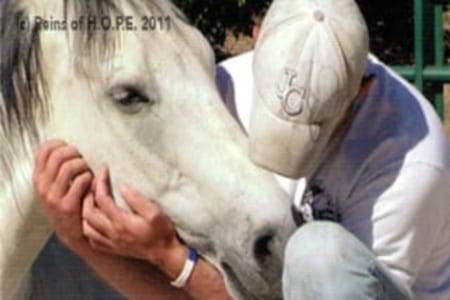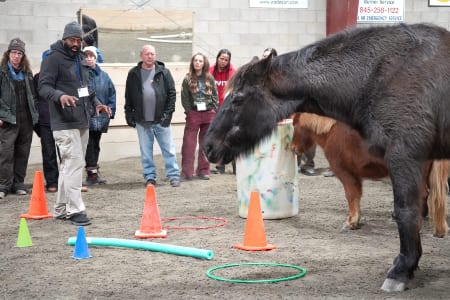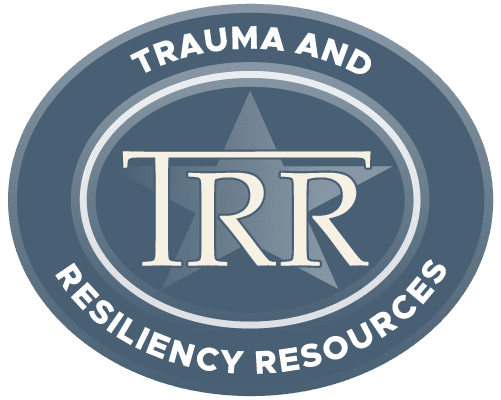EQUINE THERAPY
The model of equine therapy TRR uses is called Equine Assisted Psychotherapy.
Equine Assisted Psychotherapy (EAP) is a powerful psychotherapeutic approach that includes horses as part of a psychotherapy team. The other members of the team are a licensed mental health professional and an equine specialist professional. All work with the horses takes place on the ground only – there is no riding.
Working with horses can help people discover and overcome unhealthy patterns and behaviors, especially as they affect our relationships with other people. This is because the horse, as a non-verbal communicator, gives immediate feedback about actions and body language through their own response. Horses are exceptionally sensitive and are able to mirror emotions as well as behavior. We learn what is going on with our human clients by watching what the horses are doing.
EAP for Combat Trauma and First Responder Trauma
The application of equine assisted psychotherapy to the treatment of traumatized individuals, including and especially combat veterans and first responders, is a new and important development. Exposure to traumatic events produces a massive upheaval in the arousal system. Many trauma symptoms express themselves as either hyper or hypo nervous system response. A few of these are irritability and anger, sleep disruption, hyper-vigilance, and an exaggerated startle response.
The other system that is disrupted with multiple traumas, trauma of extended duration or that which is inter personally inflicted is the attachment system. This gives rise to many of the symptoms now considered to be complex trauma, some of which are impaired relationships with family and friends, a generalized social withdrawal, and a loss of previously sustaining beliefs, among others.
And, in the context of combat trauma exists Moral Injury which we define as an existential or spiritual crisis that can be the consequence of having been trained to override the intrinsic aversion to the taking of human life. It can also be the result of having engaged in combat operations, however necessary at the time, during which one’s ethics and actions did not align.
Working in close proximity to horses seems to be of extraordinary help in addressing these challenges. There are a few reasons this is so:
- Horses live in the present moment. They respond to what is and to intention. Interacting with them teaches mindfulness, which can be a window into reclaiming life as it is lived in the here and now.
- Horses are active. Working with them necessitates movement and grounding, which decreases arousal and dissociation. Mindfulness, grounding, movement and working in the present moment all increase the individual’s capacity to experience the present rather than responding to the traumatic past.
- Horses are social animals. Their natural curiosity and playfulness is, at times, so powerful as to supersede their interest in food. Being invited to interact with them overcomes isolation and supports people’s interest in novelty. This helps to re-engage the frontal lobes, increasing the capacity to think.
- Horses are non-judgemental. They accept people and other horses as they are, without bias or discrimination.
- Horses live in a herd. They model non-predatory group behavior and can teach people how to interact without violence.
At TRR we understand that combat veterans do not get traumatized or experience Moral Injury in isolation. Their trauma and Moral Injury happens in the context of a highly trained, closely knit, cohesive unit. And so healing needs to happen in a unit. In our Warrior Camp® program and our equine training for professionals we teach through a group process that involves working with a herd of 7-8 horses, at liberty – without any instruments of control or domination. This is to help participants, by observing and interacting with the herd, learn to engage in a way that reduces conflict both between people and internal to each individual.

Donate
Support Our Work

Get Help
Combat Veterans of All Eras

Get Trained
Training for Professionals
